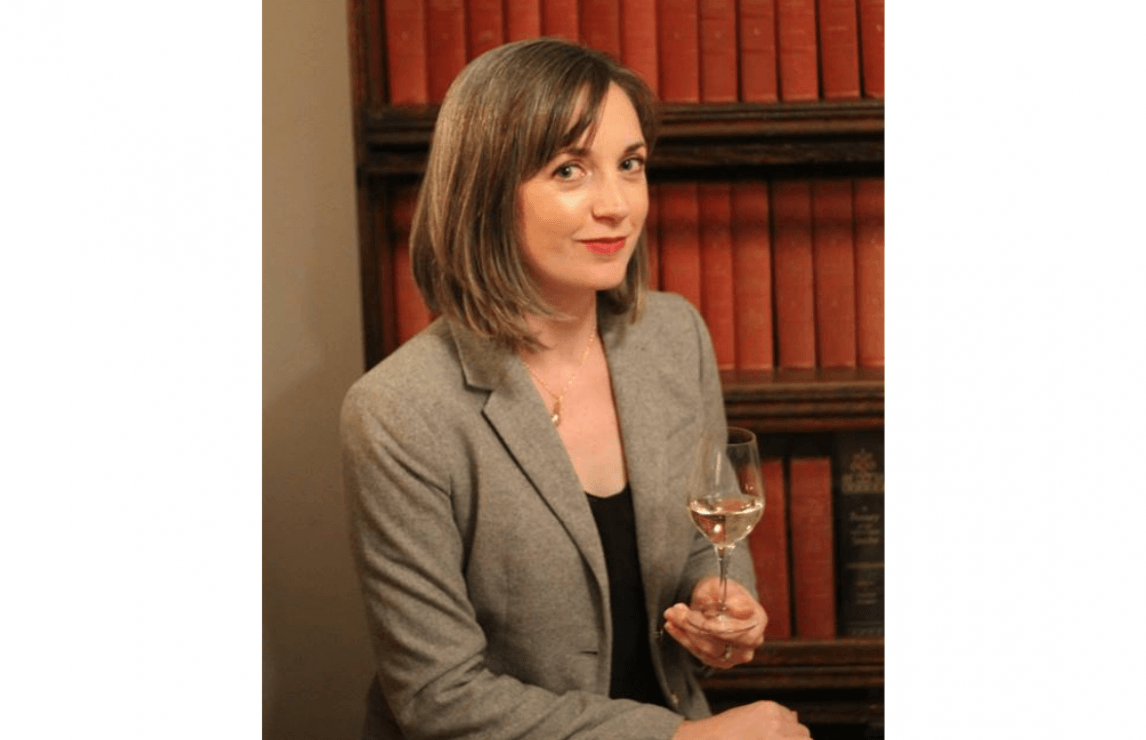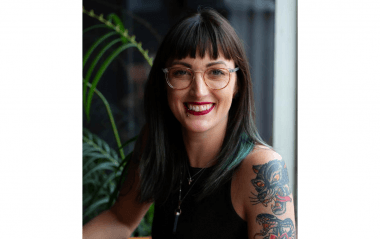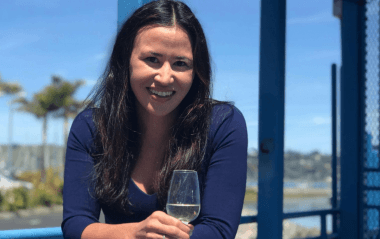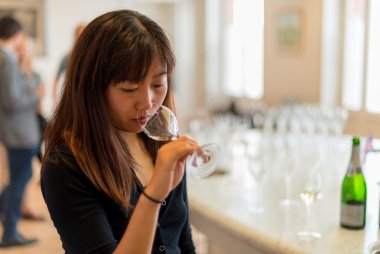Future 50 Q&A: Jennifer Regan-Lefebvre
The Future 50 is a new initiative created by WSET and IWSC to select 50 future influencers of the global drinks industry. Find out more and view the final list here.
Jennifer Regan-Lefebvre is a wine historian and university professor. She is currently associate professor of history at Trinity College in Connecticut, USA, where she teaches World Histories of Wine and The History of French Wine.
What do you do?
I’m a historian, writer, and educator telling complex stories about the global history of wine. I am completing a book, the first history of wine production and trade in the British Empire, which will be published by the University of California Press in 2021. I have also created a free, online course called The World History of Wine for Edx.org.
Any updates since you won the Future 50 award last year?
I’ve been focused on completing my book and developing a few other scholarly projects related to the history of food and drink. The final stages of writing a book are intense. Syrah helps.
How was your work affected by the coronavirus outbreak?
The coronavirus outbreak has really disrupted my work. I live in Connecticut and went into lockdown in mid-March.
I had planned on spending the spring finishing my book, and was also excited to take a long-awaited research trip to South Africa to consult historical archives and visit a number of vineyards. Obviously, my travel plans were all scrapped, and even if I could have travelled, the archives were closed and alcohol sales were banned, so I wouldn’t have been able to do any tastings. I was so disappointed not to be able to go, and so sad for the South Africans whose lives and livelihoods are in jeopardy because of this virus.
How did you spend your time during the lockdown?
The lockdown has been a gift for some writers, but I have three young children, so it’s been a challenge. I have spent most of my time tag-teaming with my husband, juggling home-schooling, nappy changes, Zoom meetings, and writing. I’ve been busier than ever! It’s been very frustrating, but a lot of people in my community are suffering and I know that my family is lucky. I am so grateful that we are healthy and food-secure, and that we have the resources to keep our kids entertained. Plus, my local wine shop delivers.
What are you most looking forward to as the lockdown eases?
Travel! The lockdown is actually easing here in Connecticut. We had an early, horrific spike in cases, but people were smart and complied with an aggressive stay-home order, and now we’re the best state in the USA for beating the virus. I have been able to get out a bit and enjoy the terraces of my local cafés, but my best friends are in the UK and my husband’s family is in France, so we are really looking forward to being able to travel and see them again. I’m determined to make it to Cape Town too.
What’s been your favourite drink of 2020?
On a personal level, nothing will top the first glass of Champagne I had after my son was born in January. I am always excited to drink Champagne, but it tasted particularly fantastic after months of mostly abstaining from alcohol.
What is your proudest achievement so far?
Being named one of the Future 50 was a major achievement; it’s unusual for academics to get that kind of recognition. I was also proud when my World History of Wine course passed 5,500 students in over 120 countries. I worked hard to produce engaging and rigorous content, shooting video lectures on three continents and incorporating historical sources. It was great fun to produce and it is satisfying to know that it resonated with so many wine lovers.
Do you have any advice for people starting out in the drinks industry?
Don’t be a snob, about either drinks or people. There is such an exciting diversity in the drinks industry. Keep an open mind and treat every new taste and every new encounter as an opportunity to learn.
Also, it’s a huge advantage in this global industry to be multi-lingual. It’s easier than ever to pursue language study in your free time; I’m currently using an app to learn some basic Afrikaans.
Have you got any particular ambitions or plans in motion?
I’m considering working towards a formal wine qualification with the WSET. I’m a wine historian and don’t pretend to be a wine expert, but I love wine and am always looking to build my skills.
I also really want to visit more wine regions. As well as South Africa, the other destinations topping my wine travel wish-list are New Zealand, Oregon, and Sicily. And I’d really love to travel to run a drinks-themed half marathon. That’s my idea of a great holiday: the beauty of the scenery, the insight into local culture, the satisfaction of finishing, and a well-deserved drink at the end!
What excites you in the drinks industry right now?
The changing demographics of connoisseurship excite me and bode really well for the future of the industry. When I started my online course, I expected that most of my students would be retirees in the United States. In fact, more than half are millennials between the ages of 27 and 40. And although Americans are the largest group, other top countries include Russia, Brazil, India, and Ukraine. Although these might not yet be massive importing countries for wine, it’s clear that there is a growing passion for wine amongst young consumers.
I’m also excited by efforts to make the drinks industry sustainable, and I think that sustainability and environmental justice will become more and more important. Very few of us can buy great drinks that are locally produced by people we know. I think we’ll see increasing consumer demand for organic drinks, and also for evidence that producers are environmentally responsible and treat workers ethically. The drinks industry has the opportunity to make a real difference, for example by reducing carbon emissions through more thoughtful packaging and shipping. As an historian, I know that even our most “traditional” drinks have adapted and changed over time. The drinks industry is dynamic and creative and we should rise to this challenge.
How has working with IWSC helped you?
The Future 50 award has helped me to make connections across the globe. It has given my work more visibility and I really enjoy speaking to people about my work and wine history more generally.
I also use the IWSC website frequently to stay updated on wine news. I really enjoy the profiles of different producers and they’re very helpful for continually expanding my wine knowledge. For me, the joys of wine, and history are that there are always new things to learn. I’m constantly thirsty for knowledge and the IWSC is a great partner.



